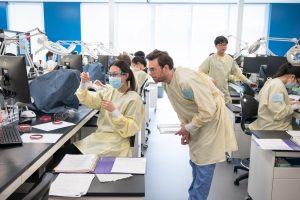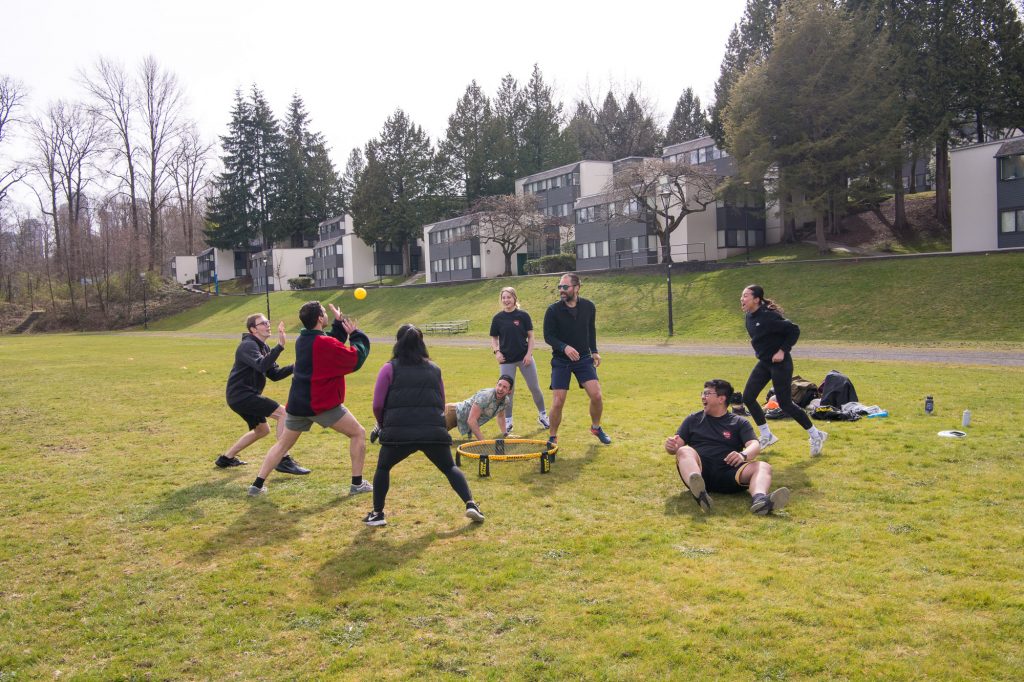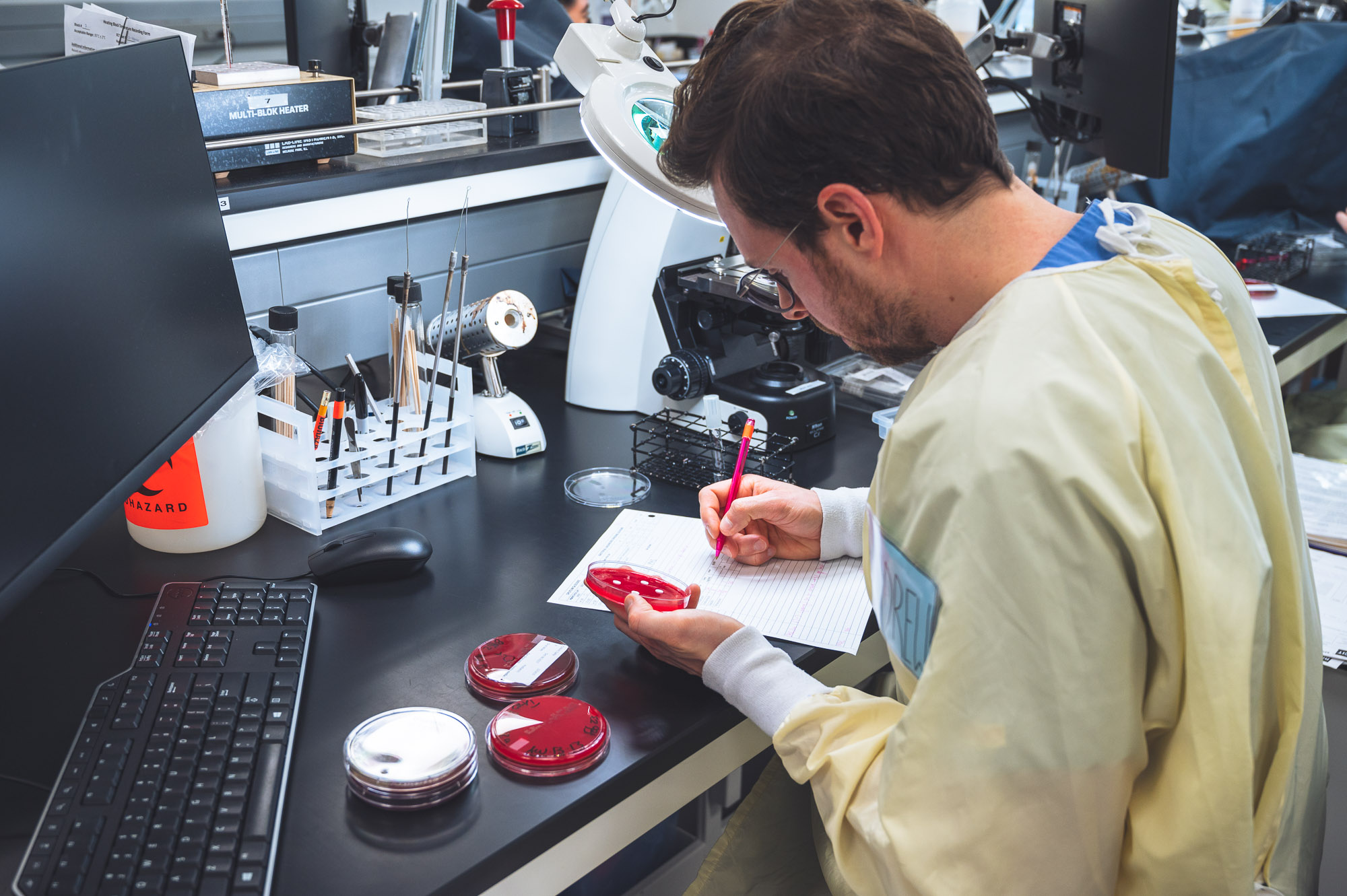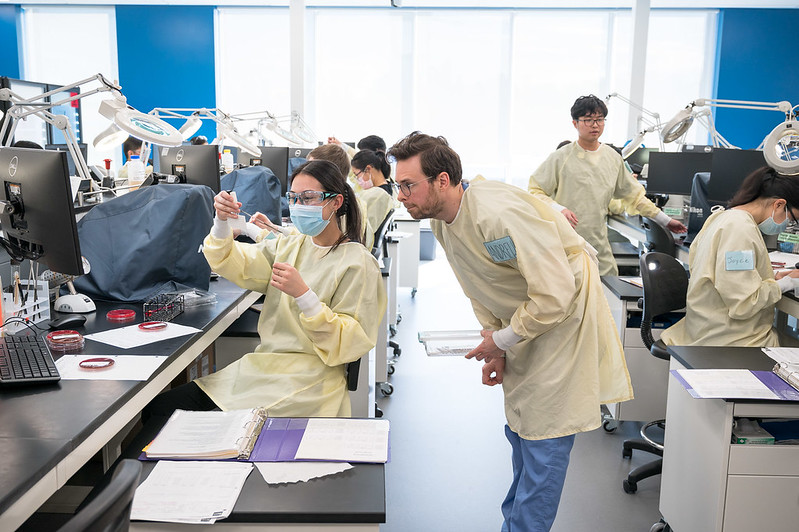It was the pressing need for medical laboratory technologists (MLTs) that motivated Andrew Warren to apply to the BCIT Medical Laboratory Science diploma program. Having already completed a degree in Analytical Chemistry, Andrew was working as a lab assistant at Royal Jubilee Hospital in Victoria. “I would hear in the lab how desperate they were for technologists,” Andrew says, realizing how urgently MLTs are needed in the BC health care system. As part of a program to retain healthcare workers, Island Health is sponsoring three-quarters of his tuition. This helped Andrew make the decision to uproot from his family on the island and return to student life.
Helping to meet the demand for medical laboratory technologists

According to Julien Pho, Program Head, Medical Laboratory Science at the BCIT School of Health Sciences, there is a Canada-wide shortage of MLTs. Because of this, program graduates enjoy a high rate of employment. “Our students typically begin their careers at hospitals and private labs where they work in one of the five main disciplines that they learn while at BCIT, with a median starting pay of $35/hour. From there, many continue their career in public health as MLTs or move into leadership and management positions, while others branch out into sales and other positions for medical device companies in the private sector,” says Julien.
Andrew’s cohort of 90 is one of the largest in BC. BCIT trains 73% of the province’s MLTs, who provide timely and reliable test results which help inform an individual’s health decisions. They work closely with other health care professionals to provide diagnostic results. For Andrew, this diploma offers him growth in his career—a technologist has more responsibility as they play a critical role in interpreting patients’ lab tests. In fact, MLTs perform over 1.2 million tests every day in Canada.
Learn more: Medical Laboratory Science
A network of friends and colleagues
While on campus, Andrew has been wholeheartedly committed to the student experience. “I wanted to get fully involved in student life,” he says. For Andrew, this meant bonding with his set mates. Each cohort in the program is divided into sets—small groups of students that take the same courses together at the same time. His set has similar study habits and like to relax and hang out together after class. He chants the set’s ultimate frisbee cheer, “what kind of ship never sinks? Friendship!”
Due to the rigorous nature of their program, it helps to have a group going through the same things. Although the course materials are often dense, together they come up with ways to take it in. “University is easy in retrospect,” Andrew reflects. The sets form strong connections as they work towards their common goal of graduation.

Julien explains that “The BCIT cohort learning model is an integral part of the student’s journey through BCIT. In the Medical Laboratory Science program, students are split into sets of 24 students who then go through the laboratory portion of the entire program together. They join the rest of the sets for lectures. This set model makes it easier for students to build long-lasting friendships that extend beyond their time at BCIT and fosters a sense of bonding and community.”
Indeed, the healthcare community is tightly knit. Back at his home lab at Royal Jubilee, having completed his on-campus terms, Andrew is embarking on his clinical term. He has rejoined his family and friends in Victoria and looks forward to deciding which of the five disciplines he will select as he continues in his career.
About Life at BCIT Series:
The Life at BCIT Series depicts moments in the lives of students each contributing uniquely to the richness and diversity of the BCIT community. Follow along on BCIT News to get a glimpse into the lives of BCIT students. Visit our Future Students page to learn more about studying at BCIT.

